Career growth is a crucial aspect of professional life, as it not only leads to higher job satisfaction but also ensures that individuals are progressing in their chosen fields. Whether you are just starting your career, looking to advance in your current position, or considering a career shift, focusing on career growth is essential for long-term success. It involves acquiring new skills, expanding your professional network, and taking on responsibilities that challenge your abilities. This article will delve into key strategies that can help individuals achieve significant career growth and unlock their full potential.
Understanding the Importance of Career Growth
Career growth is important because it enables individuals to achieve personal and professional goals, leading to greater job satisfaction and financial stability. As industries evolve and new technologies emerge, staying relevant in your field is crucial. Career growth ensures that you continuously adapt to changing demands, take on new challenges, and increase your value to employers. Additionally, career growth offers opportunities for higher earnings, job security, and a fulfilling work-life balance. Embracing career growth is not just about climbing the corporate ladder but also about developing yourself as a professional and enhancing your overall well-being.
Setting Clear Career Goals
One of the first steps in fostering career growth is setting clear, achievable career goals. Without well-defined objectives, it’s easy to get lost or feel uncertain about the next step in your career. These goals should be specific, measurable, attainable, relevant, and time-bound (SMART). Whether it’s earning a promotion, mastering a new skill, or switching industries, defining clear goals allows you to focus your efforts and measure progress. Having a roadmap for career growth gives you direction and motivation, helping you stay on track despite challenges. It’s important to review and adjust your goals periodically to ensure they align with your evolving interests and the demands of the job market.
Continuous Learning and Skill Development
Continuous learning and skill development are vital components of career growth. The professional world is constantly changing, with new tools, technologies, and methodologies emerging regularly. To stay competitive, it’s essential to invest in acquiring new skills and knowledge. This can be achieved through formal education, online courses, certifications, workshops, or self-study. Moreover, developing a diverse skill set increases your versatility, making you more valuable to employers. Staying updated with industry trends and enhancing your expertise will not only boost your confidence but also demonstrate your commitment to personal and professional growth.
Building a Strong Professional Network
Networking plays a key role in career growth, as it opens doors to new opportunities and provides valuable insights. Building a strong professional network allows you to connect with people in your industry, share knowledge, and learn from others’ experiences. Attending industry conferences, joining professional associations, and using platforms like LinkedIn are excellent ways to grow your network. Engaging with peers, mentors, and industry leaders can also provide guidance, support, and opportunities for career advancement. By nurturing relationships with people who share similar interests and career goals, you increase your chances of being recommended for promotions, job offers, or collaborative projects.
Seeking Feedback and Mentorship

Seeking feedback and mentorship is a powerful strategy for career growth. Feedback provides insight into your strengths and areas for improvement, helping you refine your skills and performance. Regularly asking for constructive feedback from supervisors, colleagues, or clients helps you understand how you are perceived and how you can enhance your work. Mentorship, on the other hand, provides an opportunity to learn from someone who has more experience in the field. A mentor can offer valuable advice, share career lessons, and help you navigate challenges in your professional journey. Establishing a mentorship relationship can provide ongoing support and guidance as you work toward your career goals.
Taking on New Challenges and Responsibilities
One of the best ways to grow in your career is by taking on new challenges and responsibilities. Stepping outside your comfort zone and volunteering for projects that stretch your abilities can accelerate your career development. These new experiences provide opportunities to learn, problem-solve, and demonstrate leadership potential. By taking on more responsibility, you showcase your readiness for promotions or lateral moves to higher positions within your organization. Employers value employees who show initiative, demonstrate a strong work ethic, and are willing to take on challenges that benefit the team and company. Embracing challenges with enthusiasm can significantly contribute to your career growth.
Developing a Strong Personal Brand
Developing a strong personal brand is crucial for career growth in today’s competitive job market. Your personal brand is how you present yourself professionally—your reputation, your values, and your unique set of skills and experiences. Building a personal brand helps you stand out and be recognized as an expert in your field. This can be achieved by maintaining a consistent and professional online presence, contributing to relevant discussions, writing articles or blogs, and showcasing your work through portfolios or social media. A strong personal brand not only increases your visibility but also enhances your credibility and reputation, making you an attractive candidate for career opportunities.
Mastering Time Management
Effective time management is an essential skill for career growth. Juggling multiple tasks and meeting deadlines is often a part of professional life, and the ability to manage time effectively can make a significant difference in your performance. Prioritizing tasks, breaking down complex projects into manageable steps, and setting realistic timelines are important aspects of time management. Learning to delegate when necessary and avoiding procrastination also contribute to more efficient work. With better time management, you can increase productivity, meet goals, and ensure that you’re dedicating enough time to the activities that promote your career growth.
Staying Positive and Resilient
Career growth is not always a smooth path, and challenges or setbacks are inevitable. Whether it’s dealing with difficult coworkers, facing unexpected obstacles, or dealing with career plateaus, staying positive and resilient is critical. Resilience helps you bounce back from disappointments and continue pursuing your goals with determination. Maintaining a positive attitude enables you to stay motivated, overcome difficulties, and see challenges as opportunities for growth. Resilient individuals are adaptable, solution-oriented, and able to manage stress, all of which contribute to long-term career success. Embracing a growth mindset and remaining optimistic despite setbacks can fuel your professional journey.
Work-Life Balance and Career Growth
Achieving a healthy work-life balance is an important factor that contributes to long-term career growth. Overworking and neglecting personal time can lead to burnout, which negatively impacts both job performance and overall well-being. Taking care of your physical and mental health, spending time with loved ones, and pursuing hobbies outside of work helps maintain energy levels and fosters a sense of fulfillment. A well-balanced life also leads to higher job satisfaction and better focus on career development. Employers who value work-life balance foster a more productive and engaged workforce, which directly impacts overall business success.
Adapting to Change and Industry Trends
Adapting to change is essential for career growth, particularly in industries that experience rapid technological advancements. Professionals who are open to new ideas, processes, and innovations are more likely to thrive in a changing work environment. Staying informed about industry trends, understanding market shifts, and learning how to use new tools or technologies will ensure that you remain relevant in your field. Being adaptable shows that you are willing to embrace challenges and continuously improve your skill set, both of which are highly valued by employers. By staying ahead of trends and being proactive in adapting to change, you can continue to grow and advance in your career.
Conclusion
Career growth is a continuous journey that requires dedication, hard work, and strategic planning. By setting clear goals, investing in learning, building a professional network, seeking mentorship, and taking on new challenges, you can create a pathway toward professional success. Developing a strong personal brand, mastering time management, and maintaining resilience during setbacks further contribute to long-term career advancement. Moreover, maintaining a healthy work-life balance and staying adaptable to industry changes will help ensure that you remain motivated and relevant in your field. By embracing these strategies, you can achieve substantial career growth and reach your professional aspirations.
